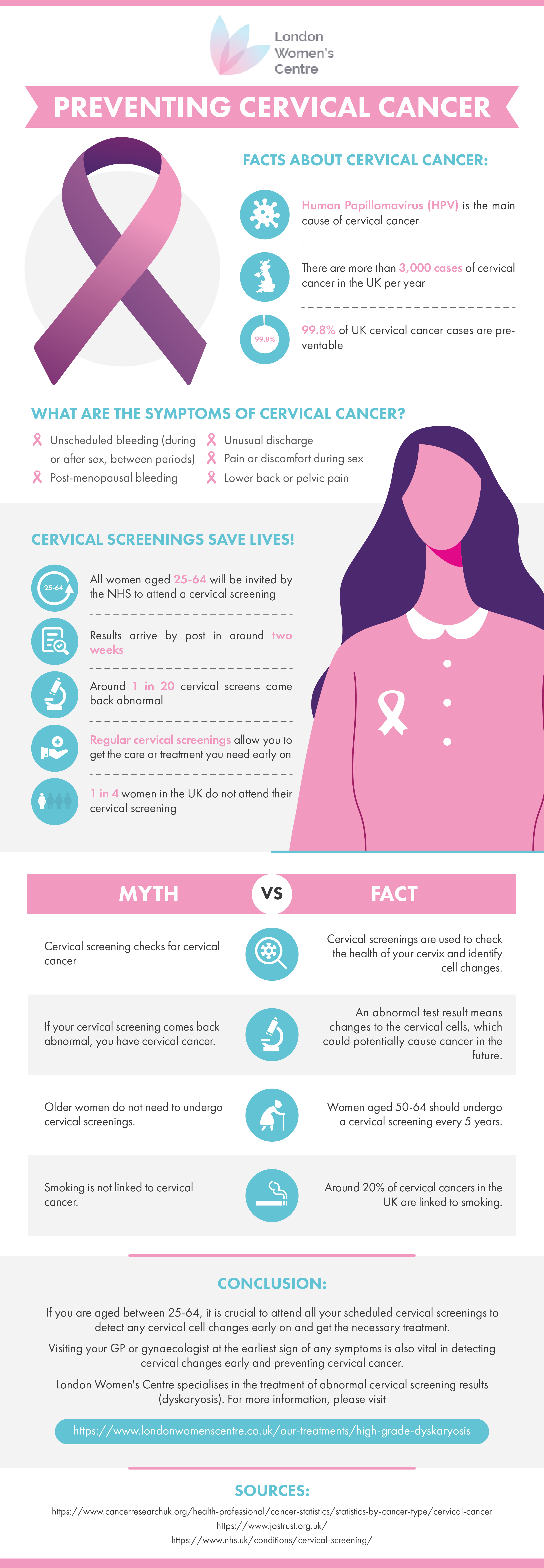What are the symptoms of cervical cancer?
Although cervical cancer will not always cause symptoms, or the symptoms may not be easily noticeable, there are several common symptoms, including:
It is important to note that these symptoms are more often related to other problems that are not cervical cancer. However, if you notice any of the above symptoms, you should visit your GP right away to receive the right support.
Cervical screenings save lives!
Although there are more than 3,000 cases of cervical cancer in the UK per year, 99.8% of cases are preventable. Attending your scheduled cervical screenings is the most effective way to help prevent cervical cancer.
Cervical screenings are free health tests that are available for all women in the UK aged 25-64. You will be invited by the NHS to attend your cervical screening when you turn 25 and at regular intervals afterwards, depending on your age and the results of your last test.
Cervical screenings do not check for cervical cancer but are instead used to check the health of your cervix and identify cell changes.
The results of your cervical screening will arrive by post in around two weeks. Around 1 in 20 cervical screens come back abnormal, however, this does not mean you have cervical cancer. An abnormal cervical screening result means changes to the cervical cells, which could potentially cause cancer in the future.
Regular cervical screenings allow you to get the care or treatment you need early on, so it is important to attend your cervical screening when you are invited to do so. Around 1 in 4 women in the UK currently do not attend their cervical screening.
Moreover, visiting to your GP or gynaecologist at the earliest sign of any symptoms is also vital in detecting cervical changes early and preventing cervical cancer.
London Women’s Centre specialises in LLETZ treatment for abnormal cervical screening results. For more information, please contact us to book a consultation with one of our specialists.


